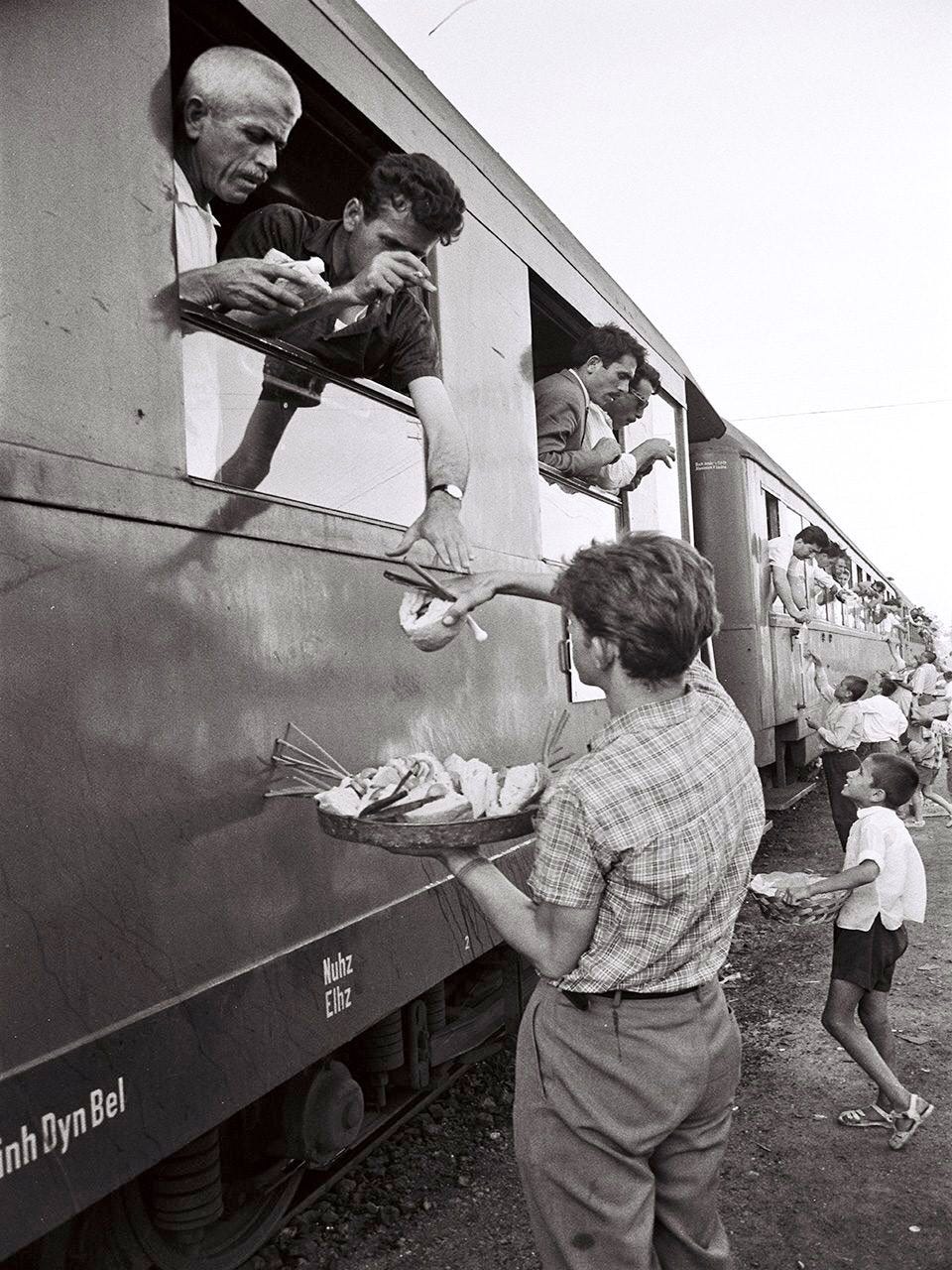I had to skip last week due to COVID. So much for super immunity!
This week I’ve translated a poem by Ali Akbaş describing the first wave of Turkish migrants to Europe. This topic is near and dear to my heart as I spent big chunks of my childhood in Germany.
Turkish migration to Europe started in the 1960s, when Germany was rebuilding and needed foreign labor. At first, it was Turkish men who went as “guest workers”, but soon whole families and villages started to go. Many would depart from Sirkeci train station. If you’ve ever been to Istanbul you’ve probably walked by it - it’s in Eminönü, in the historical peninsula, on the way from Galata bridge to Hagia Sophia.
It’s not an easy poem to translate. I haven’t maintained rhyme, but I hope I’ve kept some of the cadence. For the original, see here.
Migration
by Ali Akbaş
A train departs Sirkeci
All I have departs, my honor departs,
The Danube is ashamed of us, we are ashamed in its presence,
It buries its face in its hands.
Don’t worry, my Danube,
The hero is born naked of its mother.
A train departs Sirkeci,
A wagon departs, my troubles depart,
On my own in strange lands,
It takes all I have and departs
A train departs Sirkeci,
Whoever departs, departs with sickness,
A bell rings, mothers cry.
My boy, my boy, the children are orphaned, the brides widowed,
Night falls with gloom,
My shoulders stoop one by one,
A train departs Sirkeci,
It sheds my tears and parts.
A train departs Sirkeci,
Duran from Erzurum departs,
Burhan from Ankara departs,
Here there is the azan, there there are bells,
Every morning they ring out above us,
Wake up! Wake up!
A train departs Sirkeci,
An illuminated Quran departs,
You know how one spills water after those departing,*
Yesterday, as soldiers to India, to Yemen,
Today to bread, to strange lands,
They don’t return.
A train departs Sirkeci,
My ruined home departs,
We always crossed the Danube on horseback,
Never like this, with woman and child,
We never crossed like this,
The Danube is ashamed of us, we are ashamed in its presence,
Don’t worry, my Danube,
The hero is born naked of its mother,
A train departs Sirkeci,
A wagon departs, my troubles depart,
On my own in strange lands,
It takes all I have and departs.
A train departs Sirkeci,
Duran from Erzurum departs,
Burhan from Ankara departs,
Here there is the azan, there they have bells,
Every morning they ring out above us,
Wake up! Wake up!
A train departs Sirkeci,
An illuminated Quran departs.
In a way, the poem depicts a scene of epic status anxiety.
The children of an empire spanning three continents, who once made Europe tremble with fear, are now reduced to toil in European factories and coal mines. “We always crossed the Danube on horseback/never like this, with woman and child” has always stirred something in me.
What to do in this depth of civilizational defeat? You hold on to what’s holy, what makes you distinct. You bring the “illuminated Quran” along. You remember that “the hero is born naked of its mother,” that as long as you don’t let the shame rule you, there will be better days. It is no coincidence that the AK Party does so well with Turkish voters living in Europe.

The German, Dutch and French people who encountered Turkish workers on the other end of these journeys were probably unaware of this emotional undercurrent. I’m afraid that most of us in Turkey are just as unaware of the emotional lives of the Syrians and Afghans who make it to our country today.
*in Turkey, it’s common to spill a bit of water after someone is departing. The idea is that the person “goes away like water and shall come back like water.” When I’m leaving after a visit to my parents’ in Izmir, my mother will literally turn on a hose and sprinkle water after me.
Bonus: the poem was put to music by İbrahim Sadri, which I think did a great deal to popularize it. The YouTube video below has some pretty good shots of Sirkeci, as well as some entirely irrelevant pictures of random trains and attractive looking people.



